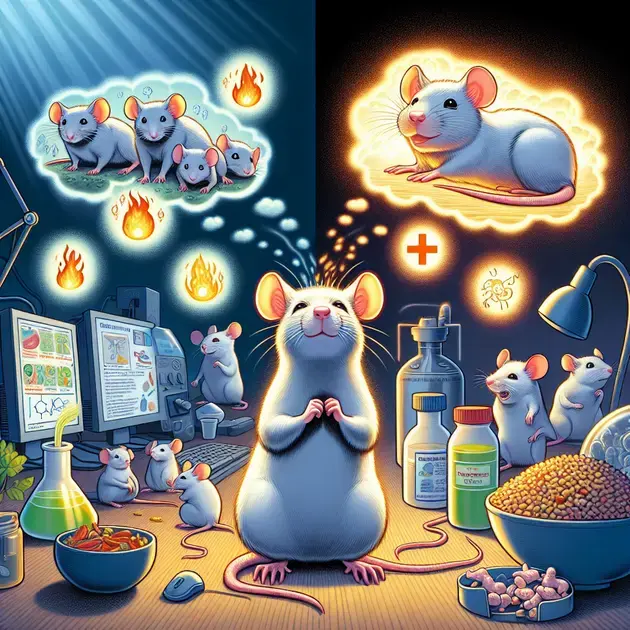Polybrominated diphenyl ethers (PBDEs) and the Potential Benefits of Probiotic Supplementation
Polybrominated diphenyl ethers (PBDEs) are a common group of fire-retardant chemicals that are widely used in various products, ranging from electronics to furniture. These chemicals have become pervasive in the environment, with traces being found in air, water, and soil. PBDEs are known to have detrimental effects on human health, particularly on neurodevelopment, behavior, and metabolism.
A recent mouse study has shed light on the potential benefits of probiotic supplementation in mitigating the negative impacts of PBDEs. Probiotics are living microorganisms, typically bacteria, that offer a range of health benefits when consumed in adequate amounts. They are commonly found in certain foods, such as yogurt and other fermented products.
In this study, researchers exposed a group of mice to PBDEs and observed the effects of probiotic supplementation on their neurodevelopment, behavior, and metabolism. The results were promising, indicating that probiotics had a protective effect against the harmful effects of PBDEs.
Neurodevelopment refers to the process by which the nervous system develops, including the growth and differentiation of neurons. PBDE exposure has been linked to impairments in neurodevelopment, leading to cognitive and behavioral deficits. However, mice that were supplemented with probiotics alongside PBDE exposure showed improved neurodevelopmental outcomes compared to those without probiotic supplementation.
Behavioral changes have also been observed in individuals exposed to PBDEs. These changes can manifest as hyperactivity, impaired learning and memory, and altered social behavior. The mouse study found that the mice receiving probiotic supplementation exhibited fewer behavioral abnormalities compared to those not receiving probiotics, indicating a potential role for probiotics in promoting normal behavior despite PBDE exposure.
Metabolism refers to the biochemical processes that occur within an organism to maintain life. PBDEs have been shown to disrupt normal metabolic function, leading to metabolic imbalances and obesity. However, the mice supplemented with probiotics demonstrated improved metabolic markers, suggesting that probiotics may help counteract the detrimental effects of PBDEs on metabolism.
While this mouse study provides valuable insights into the potential benefits of probiotic supplementation in mitigating the negative impacts of PBDEs, further research is needed to validate these findings in humans. Nevertheless, the preliminary evidence suggests that probiotics may offer a natural and effective approach to protecting against PBDE-induced neurodevelopmental, behavioral, and metabolic issues.
In conclusion, PBDEs are widespread fire-retardant chemicals that can have harmful effects on neurodevelopment, behavior, and metabolism. However, a mouse study suggests that probiotic supplementation may help mitigate these negative impacts. The potential benefits of probiotics in protecting against PBDE-induced issues offer an exciting avenue for future research and potentially innovative strategies to counteract the harmful effects of these ubiquitous chemicals.
